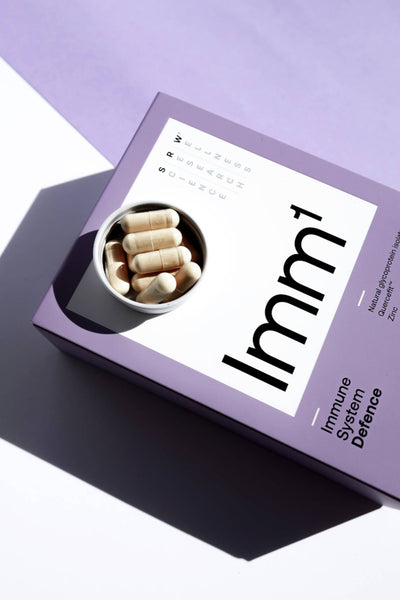Glycoprotein from egg yolks isolated; world first for NZ company.
Eggs have had a bum rap over the years. The myth they are bad for health not only began decades ago, it persisted for many years.
Modern research has undone the mistaken impression that eggs were linked with bad cholesterol and heart disease. Now a new supplement is taking eggs where they have never gone before – extracting a glycoprotein found in egg yolks, a substance scientists say helps support the immune system of new-born chicks.
Called Imm¹ Defence, this cellular nutrition supplement is designed to support the human immune system. Founder of SRW (Science Research Wellness), pharmacist, cellular health expert and biotechnologist Greg Macpherson stops well short of making claims about what Imm1 can do – but says the supplement uses a patented process to extract the glycoprotein, resulting in a patented ingredient called Muno-IgY.
"Eggs are an amazing food," he says, "providing just about all the nutrition you need. However, to gain the benefits of glycoproteins, you'd have to eat 2-3 raw egg yolks a day – and not everyone likes that idea. You also expose yourself to the bugs that can occasionally come with eggs that aren't cooked.
"Unfortunately, the acid in our stomachs and the heat from cooking removes the beneficial properties of glycoproteins, so we knew we needed to isolate and purify it to get it into capsules that withstand these environments. Working with our partner company, we believe we are the first in the world to do so."
Scientific research/studies, of which there are many, have documented how the ingredients within of Imm1 Defence* support the immune system in a dual action – in the gut, where it supports the first line of defence, and then by supporting the normal function of immune cells, Macpherson says.
Now, with borders open and travellers once again moving between countries, it is a good idea to support our immune defences so they can recover well when under duress. Macpherson says: "A good immune system depends on a lot of things like good lifestyle choices, exercise and stress management, as well as using new biotechnology."
As people grow and are exposed to different pathogens, their immune system develops, he says. Most people peak in their 20s when it comes to their immune response. From then on, most people find immune functions gradually decline, falling below the levels inherited at birth in their 40s.
The effectiveness and the speed of immune response changes as people age and can be affected when the immune system is subjected to pressure like exhaustion or stress. The immune system also affects recovery from injuries, which also changes with age.
Egg-based glycoproteins have been around at least since 1969, says Macpherson, although not recognised then for the properties known now. Ironically, that's about the same time eggs were getting their first bad rap, later corrected.

Distinguished US physician-epidemiologist and SRW advisory board member, Dr Paul Kilgore, says in a statement: "The overarching vision of my research is to support the immune system of infants, children and adults. My recent work involves the evidence-based evaluation of natural glycoprotein isolate to support the overall immune system health and response."
Kilgore, attached to Wayne State University Medical School and the University of Michigan School of Public Health, has over 27 years of experience in public health research and is heavily involved in the development of human studies for natural glycoprotein isolate applications to support overall immune health.
Macpherson says SRW specialises in formulating targeted cellular health supplementation – exporting to markets around the world, and he says the company will continue focusing on developing their range and expanding globally.
He also founded one of NZ's first online pharmacies, MPS (NZ's first registered robotic dispensing laboratory) and was previously the CEO of a successful a biotech company which commercialised an antioxidant developed at Otago University.
In 2020 he authored Harnessing the Nine Hallmarks of Aging, a book that simplifies the latest science behind why we age, making the knowledge that has come from these breakthroughs accessible.

Read the original article from NZ Herald here

![How egg yolk can support health [NZHERALD]](http://scienceresearchwellness.com/cdn/shop/articles/SRW_-_News_Clip_-_Post_-_Imm1_-_D1_6ab2e12a-6275-43b5-806d-71bd94bd6a2d.jpg?v=1692743114&width=3000)
![Never Grow Old - Longevity Issue [Nutrition Business Journal]](http://scienceresearchwellness.com/cdn/shop/articles/NBJ_Post_-_LinkedIn.jpg?v=1692742979&width=1500)
![Circulatory system care "vital" [NZHERALD]](http://scienceresearchwellness.com/cdn/shop/articles/SRW_-_News_Clip_-_Post_-_Cir1_-_D1_dfadc7dc-c57a-4f80-82bd-4fdb5ba5f0cd.jpg?v=1692742734&width=1500)
